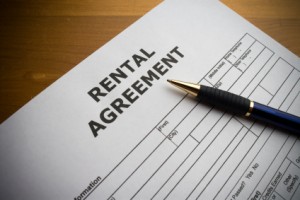Posted by Teresa on September 28, 2010 under Landlord Tips | 
 Many human resources managers are fans of the exit interview, where a soon-to-be ex-employee is asked a series of questions about his or her time with the company. They generally use the employee’s feedback to monitor procedures and gain insight into problem areas. Presumably, they will take the information gathered and make improvements.
Many human resources managers are fans of the exit interview, where a soon-to-be ex-employee is asked a series of questions about his or her time with the company. They generally use the employee’s feedback to monitor procedures and gain insight into problem areas. Presumably, they will take the information gathered and make improvements.
Some employees use the exit interview as an excuse to unload every frustration about the company, the boss and the co-workers they were doomed to work beside. But most HR folks know that they can be a source of good, honest feedback—after all, with no chance of repercussion, an employee who’s already resigned can be completely honest.
Haven’t you often wondered why your good tenants leave your rental property? Perhaps you routinely ask, but have you considered expanding on the simple “why are you moving?” into your own version of the exit interview? It’s good to know what went wrong and why a good tenant is moving. They are your perfect focus group—they are your target market, passed your screening process and apparently liked your rental property enough to live there. But something made them move. As a landlord, it’s your job to find out why they’re leaving—and how to prevent it next time.
Here are some questions you can ask tenants who are moving out:
- Why are you moving? (Obvious, but necessary.)
- Where are you going? This question is not intended to elicit an address—remember, you’re not interested in stalking the tenant! You want to know generally where they’re going—across town? Leaving the state?
- What do you think about the rent for this unit? Is it fair? Too high? Too low? These answers can tell you what the market will actually bear.
- How did you find your new place? This can help you determine where to advertise your new vacancy!
- How would you describe your experience renting here? This is an open-ended question that can result in all types of answers.
You may hear an earful about the other tenants. You may hear some unpleasant things about yourself as a landlord. Most likely, it will be a mix of things you can do something about and things you can’t. The goal is to get good feedback on how to improve your rental property to keep good tenants from moving away.
Posted by Teresa on September 25, 2010 under Housing Trends | 
 A new survey by Fannie Mae reveals that the goal of home ownership is losing its appeal for Americans. Falling home prices, foreclosure and financial ruin is enough to make the strongest homeownership desire fade, as evidenced by the falling number of people who say they consider housing a safe investment.
A new survey by Fannie Mae reveals that the goal of home ownership is losing its appeal for Americans. Falling home prices, foreclosure and financial ruin is enough to make the strongest homeownership desire fade, as evidenced by the falling number of people who say they consider housing a safe investment.
The percentage of Americans who though of housing as a safe investment was 83% in 2003. But by July of this year, it has fallen to 67%. That’s three points lower than January 2010. And, while more Americans (70% in July vs. 64% in January) believe home prices are nearing the bottom and it’s a good time to buy, the number of households saying they’re more likely to rent than buy rose from 30% in January to 33% in July.
Why Americans are Renting
If home prices are falling and mortgage rates are near 50-year lows, why wouldn’t more people be lining up to buy homes, rather than rent them? First, tighter lending standards. People simply can’t qualify for mortgages like they could in the free-flowing days of the early 2000s. Second, the still-stagnant labor market is keeping people from taking on more debt; those with jobs are paying off debt and tightening up on spending. Third, even if they did qualify for a mortgage, people think they cannot. In fact, more than 50% of renters believe they cannot obtain a mortgage to purchase a home.
Younger people are taking a wait-and-see approach, according to a Wall Street Journal article on the rental market. Where once they might have purchased a condo, they are renting for the long-term foreseeable future. They’ve seen friends become “stuck” owning homes they cannot sell, unable to move and take advantage of job opportunities. And, they see homeownership as an “economic trap.”
Economic analysts say these changing attitudes could lay a “more stable foundation for the housing market,” as Americans see homes as a durable good, like a car, and not an investment. And it’s good news for landlords, who could be enjoying lower vacancy rates in the future!
Posted by Teresa on September 21, 2010 under Landlord Tips, Tenant Screening & Background Checks | 
 Sizing up tenants is a tricky business. Legally, a landlord cannot discriminate against potential tenants based on gender, age, race, family status, religion, disability or country of origin. And experienced landlords know that you can never judge a book by its cover. That flashy car and expensive jewelry doesn’t guarantee a tenant that will pay the rent on time. Conversely, a beater car and sloppy appearance might not be ideal, but if they can pay the rent, should we care about a wrinkled shirt?
Sizing up tenants is a tricky business. Legally, a landlord cannot discriminate against potential tenants based on gender, age, race, family status, religion, disability or country of origin. And experienced landlords know that you can never judge a book by its cover. That flashy car and expensive jewelry doesn’t guarantee a tenant that will pay the rent on time. Conversely, a beater car and sloppy appearance might not be ideal, but if they can pay the rent, should we care about a wrinkled shirt?
While keeping an open mind during the tenant application process is a good idea, you still want to start the screening process with your very first contact.
Here are 4 warning signs that a potential tenant could cause you problems:
- Your potential tenant cannot pay the security deposit. If they want to pay in installments, or as soon as they get paid next week, or when they get their security deposit back on their current place, you might need to get used to hearing such excuses.
- They are a little too “salesy.” Excitement over finding a great apartment or rental house is great—you want your tenants to like your rental property. But major flattery of you, your outfit, your hairdo or the property should be a red flag. So is selling him or herself too hard. You could have a con artist on your hands!
- A potential tenant starts asking about trading services for rent. There are plenty of landlords who allow tenants to repair and maintain their building or cut the grass in exchange for rent. But it can lead to problems. If you’re not yet at the lease stage and you’re hearing offers of bartering for rent, consider yourself lucky and move on.
- The lease application is not filled out completely. Conveniently forgetting the phone numbers of a current landlord, boss, or personal references is a bad sign. Leaving blanks indicates that your potential tenant might not want you to have that information.
Follow up your gut-check on every tenant with a thorough background and credit screening. If all comes back clean, check with references and employers to give yourself a complete picture of your tenant—before the lease is signed!
Posted by Teresa on September 19, 2010 under Tenant Screening & Background Checks | 
 As we all wait for the economy to fully recover from recession, we’ve heard reports of landlords skipping over essential steps in the tenant screening process. Thorough tenant screening is one of the best investments a landlord can ever make—some suggest that it can help you avoid about 99% of the problems landlords have with their tenants. When prescreening tenants, don’t skip over two essential pieces of background checks: verifying tenant income and employment. 3 Reasons to Verify Every Tenant’s Employment and Income 1. Not all tenants tell the truth. Tenants reflect the whole of our society, and your potential tenants are a mix of honest, dishonest, professional liars and ex-cons. When they tell you where they work and how much money they earn, they might be telling the truth—or they might not. Verifying employment and income is the only way to know for sure. Landlord Tip: Be wary if the tenant insists you talk to a certain person at their place of employment—they could be directing you to a friend who is posing as the employer. 2. Having money doesn’t equal having a job. A nice car, expensive clothes and shoes and armfuls of jewelry can all be purchased on credit. A landlord we know was conned by a nicely-dressed applicant and signed a lease with her. Later, she found out that she had been laid off six months earlier from the employer she listed on the lease application. Making a quick telephone call to the employer would have avoided this situation. Landlord Tip: Look up employer telephone numbers yourself, either online or in the phone book. Some tenants will provide false information. 3. Keep your tenants safe from harm and your business safe from risk. Verifying income and employment helps you avoid renting to tenants involved in criminal activities. It’s easy to be impressed by a tenant with cash in hand to pay your security deposit and rent. But failure to verify a tenant’s source of income—with paycheck stubs, income tax returns (in the case of self-employed applicants) and phone calls to his or her employer—is almost asking for trouble to move into your rental property. Landlords who fail to screen properly have been held liable for harm suffered by neighbors or other tenants. Landlord Tip: Be prepared to submit a written request for information. Many employers will not provide salary info over the telephone. Don’t be in such a hurry that you can’t invest the time necessary to obtain complete information. Prescreen Tenants for Complete Peace of Mind The best way to be sure you’re renting to a qualified tenant is to prescreen all rental applicants. 100% online tenant screening is easier than ever — and it can reduce your risk!
As we all wait for the economy to fully recover from recession, we’ve heard reports of landlords skipping over essential steps in the tenant screening process. Thorough tenant screening is one of the best investments a landlord can ever make—some suggest that it can help you avoid about 99% of the problems landlords have with their tenants. When prescreening tenants, don’t skip over two essential pieces of background checks: verifying tenant income and employment. 3 Reasons to Verify Every Tenant’s Employment and Income 1. Not all tenants tell the truth. Tenants reflect the whole of our society, and your potential tenants are a mix of honest, dishonest, professional liars and ex-cons. When they tell you where they work and how much money they earn, they might be telling the truth—or they might not. Verifying employment and income is the only way to know for sure. Landlord Tip: Be wary if the tenant insists you talk to a certain person at their place of employment—they could be directing you to a friend who is posing as the employer. 2. Having money doesn’t equal having a job. A nice car, expensive clothes and shoes and armfuls of jewelry can all be purchased on credit. A landlord we know was conned by a nicely-dressed applicant and signed a lease with her. Later, she found out that she had been laid off six months earlier from the employer she listed on the lease application. Making a quick telephone call to the employer would have avoided this situation. Landlord Tip: Look up employer telephone numbers yourself, either online or in the phone book. Some tenants will provide false information. 3. Keep your tenants safe from harm and your business safe from risk. Verifying income and employment helps you avoid renting to tenants involved in criminal activities. It’s easy to be impressed by a tenant with cash in hand to pay your security deposit and rent. But failure to verify a tenant’s source of income—with paycheck stubs, income tax returns (in the case of self-employed applicants) and phone calls to his or her employer—is almost asking for trouble to move into your rental property. Landlords who fail to screen properly have been held liable for harm suffered by neighbors or other tenants. Landlord Tip: Be prepared to submit a written request for information. Many employers will not provide salary info over the telephone. Don’t be in such a hurry that you can’t invest the time necessary to obtain complete information. Prescreen Tenants for Complete Peace of Mind The best way to be sure you’re renting to a qualified tenant is to prescreen all rental applicants. 100% online tenant screening is easier than ever — and it can reduce your risk!
Posted by Teresa on September 14, 2010 under Landlord Paperwork and Forms, Landlord Tips, Tenant Screening & Background Checks | 
 1. Not approaching your rental business like a business. To be successful, all businesses need to follow a plan. They need to be capitalized. And they need to be run professionally. This takes time, energy and money. Some landlords are not willing to invest all of these resources into their businesses. Some don’t have a plan. Some don’t have enough capital to keep their businesses going when rent income falls below projections (if they even have projections). Being unable or unwilling to do all of these things will almost guarantee a rental property business that is not as successful as it should be.
1. Not approaching your rental business like a business. To be successful, all businesses need to follow a plan. They need to be capitalized. And they need to be run professionally. This takes time, energy and money. Some landlords are not willing to invest all of these resources into their businesses. Some don’t have a plan. Some don’t have enough capital to keep their businesses going when rent income falls below projections (if they even have projections). Being unable or unwilling to do all of these things will almost guarantee a rental property business that is not as successful as it should be.
2. Conducting less-than-professional relationships with tenants. Landlords vulnerable to becoming too personal with tenants are often sucked into giving extensions on paying rent, reducing security deposit requirements or otherwise allowing tenants to ignore the established rules. Tenants who suffer no consequences will usually continue to bend or break the rules. It may seem harsh, but just as you can’t walk out of store without paying for a gallon of milk, a tenant should not be allowed to live for free in your rental property—even for a day.
3. Treating tenants differently. Letting certain tenants slide on the rent, steering certain tenants toward certain units, and otherwise showing deferential treatment to an individual or group of tenants can land you in trouble quickly. Landlords are constantly taken to court on charges of discrimination for actions like these. You don’t want to be one of them.
4. Failing to document. Keeping excellent records is a habit that can save your business. It’s vital to make copies of everything from driver’s licenses (if legal in your area), move-in/move-out inspections, applications, tenant screening authorizations and lease documents. But consider making notes of phone and text messages, emails and snail mail communications, too. Even a simple spreadsheet can prove to a judge that you treat all tenants equally and follow the law.
5. Not knowing when to call in the professionals. A licensed electrician and plumber, landscaper, lawyer, accountant, tenant screening service and possibly a property management company should be on every landlord’s list of resources. You may not need all of them all of the time, but you will likely need them at some point in running a rental property business. Trying to do it all has been the downfall of many a real estate investor. Knowing when help is needed in managing rentals can save your sanity—and maybe even some of your profit!
Posted by Teresa on September 10, 2010 under Landlord Tenant Lawsuits, Landlord Tips | 
 What is an landlord liable for? If a tenant falls on the sidewalk, is the landlord liable for damages? What about broken pipes? Read on for some general information about keeping yourself safe from liability as a landlord:
What is an landlord liable for? If a tenant falls on the sidewalk, is the landlord liable for damages? What about broken pipes? Read on for some general information about keeping yourself safe from liability as a landlord:
Safety
Landlords must provide a safe living space for their tenants. This means that if a faulty railing causes a child to fall from a landing, the landlord could be held liable. If there are large cracks in a sidewalk leading to an apartment building, the landlord can be held liable when a tenant’s guest trips and falls and injures him or herself. Or, if a rental house built prior to 1978 is being renovated, proper steps must be taken to protect occupants from lead paint poisoning. Landlords must also ensure smoke and CO2 alarms are installed and functioning. And plumbing systems must function properly—tenants could possibly sue for property damage from leaking pipes.
Security
Landlords who hire property managers must be as careful about them as they are with potential tenants. Landlords can be responsible for any criminal actions by their employees. Exposing your tenants to harm and yourself to possible charges of discrimination, unfair treatment or harassment is a real threat to your rental property business.
Criminal Activity
In most states, landlords must reasonably protect tenants from criminal acts. Proper lighting and adequate door and window locks are the landlord’s responsibility. If a flimsy lock allows an assailant into a tenant’s rental home or apartment, it is possible that the landlord would be held liable. Subjecting residents to another tenant’s criminal activity could become a landlord’s liability, too. That’s one reason why tenant screening is so important. If a tenant is harmed by a parolee, for example, the landlord could be held liable for allowing a known criminal to move in.
For expert advice on how to protect yourself as a landlord, check with an attorney specializing in landlord/tenant issues. Protect your business, your tenants, and yourself from liability by screening tenants and making your rental properties safe for residents!
Posted by Teresa on September 8, 2010 under Landlord Tips | 
 Bedbugs, once reserved for run-down motels in far-away places, have found their way to the U.S. in huge numbers lately. Infestations are reported in hundreds of hotels, apartment buildings, and single family homes from New York to California. Even Google’s New York City offices are infested with the annoying little creatures. (Speaking of Google, searches for the term “bedbugs” have increased 83% in the past year.)
Bedbugs, once reserved for run-down motels in far-away places, have found their way to the U.S. in huge numbers lately. Infestations are reported in hundreds of hotels, apartment buildings, and single family homes from New York to California. Even Google’s New York City offices are infested with the annoying little creatures. (Speaking of Google, searches for the term “bedbugs” have increased 83% in the past year.)
Pest management companies report huge increases in bedbug infestation encounters, too—up from 25% in 2000 to 95% earlier this year. Why the increase? Mostly, it’s due to the U.S. ban on propoxur, an effective, but potentially harmful pesticide that had been keeping the bedbug population under control.
Movie theaters, hotels rooms and restaurants also provide a free ride home for bedbugs. And increased numbers of people traveling to the far corners of the globe are adding to the problem.
New York State recently passed a law requiring landlords to declare any history of bedbug infestations prior to renting a property. Is similar legislation in your state far behind? And have you experienced bedbugs in your rental properties? If not, you most likely will. The nasty creatures are everywhere.
Top 10 Bedbug Infested Cities
Source: The Daily Beast
- Cincinnati, OH
- Columbus, OH
- Chicago, IL
- Denver, CO
- Detroit MI
- Washington, DC
- New York, NY
- Philadelphia, PA
- Dayton, OH
- Baltimore, MD
The bad news is that bedbugs can survive a year without food. And they are becoming increasingly resistant to treatment. They seem to be more prevalent in college towns, for obvious reasons–students from many states and countries are mixing together in classrooms and dorms, carrying bedbugs with them as they go.
Landlords—if you haven’t dealt with bedbugs yet, they are very likely in your future—so educate yourself and be prepared when your first tenant calls to tell you, “we have bedbugs!”
Posted by Teresa on September 2, 2010 under Landlord Tips | 
 Realtors know that holding an open house is a great way to get lots of exposure for a property. They also use open houses to find potential new clients, often to the homeowner’s chagrin. But there are plenty of success stories of homes selling because of a well-run open house.
Realtors know that holding an open house is a great way to get lots of exposure for a property. They also use open houses to find potential new clients, often to the homeowner’s chagrin. But there are plenty of success stories of homes selling because of a well-run open house.
So why don’t more landlords adopt this idea? It’s certainly worth considering if you have a rental vacancy.
There are pros and cons to hosting a rental open house:
- You save time by showing the rental to multiple people at once;
- But you might not be able to spend quality time with each potential tenant;
- An open house can cause a sense of urgency, when a potential tenant sees others interested in the property;
- Spending too much time with Potential Tenant A could mean missing out on selling the rental to Potential Tenant B;
- You could waste time with nothing but “tire-kickers.”
Qualify Potential Tenants Prior to Holding the Open House.
Pre-screen over the phone. Ask callers responding to your for rent ad where they presently live and work. Tell them the rent, the security deposit, and any other important lease-qualifying information. Let them know you will be conducting a thorough tenant screening on all applicants. Then, if they’re still interested, let them know you’ll be holding an open house and they’re welcome to view and apply to lease the property then.
Repeat this process for the next several interested callers. You may have a dozen people show up for your open house; you may have two. No matter—you’ll still save time showing it to multiple people at once.
Getting Ready for a Rental Open House
Make sure the property is at its best. Thoroughly clean the walls, floors and ceilings. Pay close attention to the bathrooms and kitchen. Make sure the tile gleams and the floors are spotless. Put a plant on the counter.
Inspect the property from the outside. Pick up trash. Trim low-hanging tree limbs. Cut the grass, and plant some flowers outside to add to the curb appeal.
If you have some extra furniture, place a chair and table in the living room and a bed in the bedroom, so potential tenants can envision their belongings in the space. Wash the windows and turn on all the lights.
Print up flyers and leave them where visitors can find them. Include photos and a list of the basic information as well as amenities offered with the property. Don’t forget to tell potential tenants what’s nearby that they might enjoy: parks, coffee shops, grocery stores, or bike trails.
Allow open house visitors to wander through the space. Don’t crowd them, but let them know you’ll be close by if they have any questions.
Be sure you have lease applications on hand—and don’t let any qualified potential tenants leave without filling one out! If anyone is super interested, offer to collect a security deposit and first month’s rent to hold the property, and inform them it will be refunded if they do not pass your tenant screening.
People might be more receptive to viewing your property through a friendly open house than in a one-on-one showing, so why not consider hosting one?
 Many human resources managers are fans of the exit interview, where a soon-to-be ex-employee is asked a series of questions about his or her time with the company. They generally use the employee’s feedback to monitor procedures and gain insight into problem areas. Presumably, they will take the information gathered and make improvements.
Many human resources managers are fans of the exit interview, where a soon-to-be ex-employee is asked a series of questions about his or her time with the company. They generally use the employee’s feedback to monitor procedures and gain insight into problem areas. Presumably, they will take the information gathered and make improvements.






